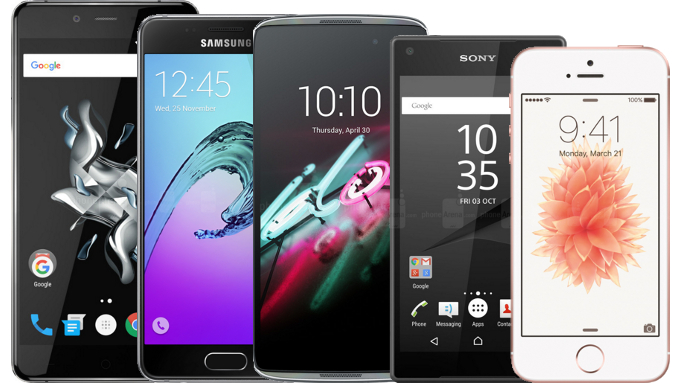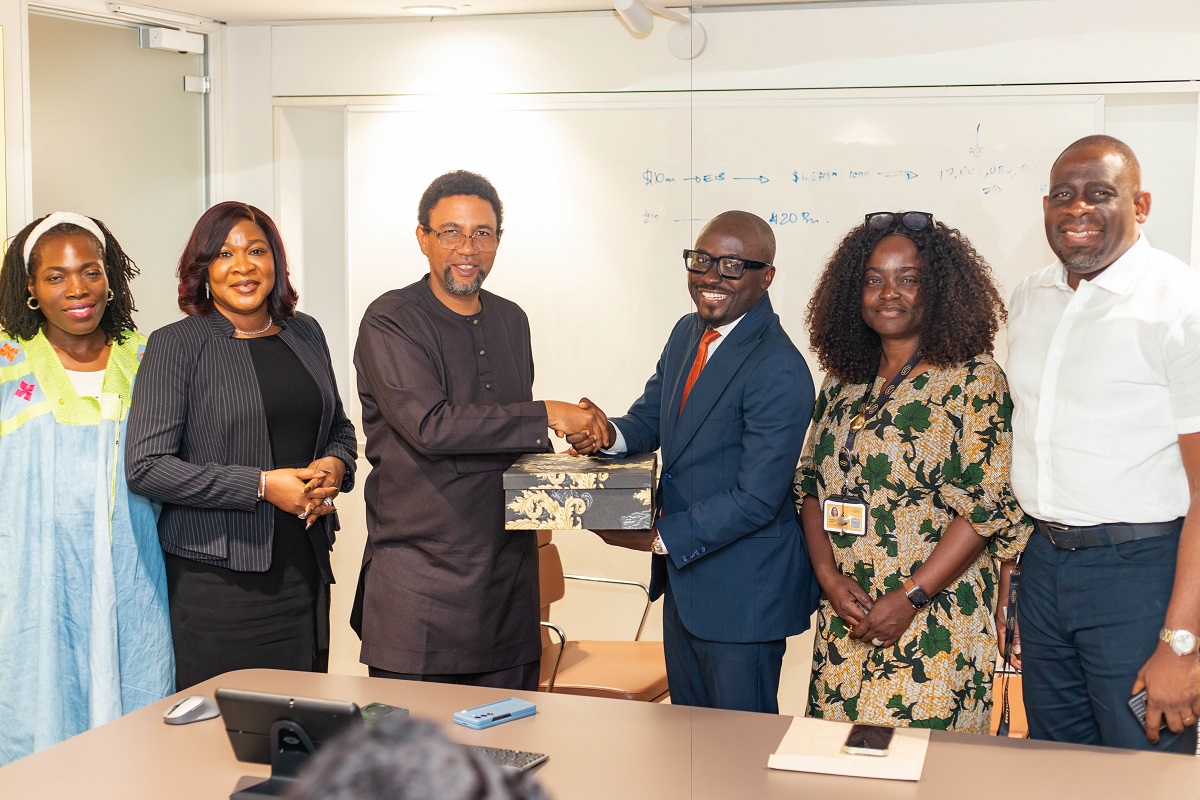Telecom
Nigeria’s Smartphone Uptake Set to Improve in 2018

Analysts at Counterpoint Research expect the smartphone market in Nigeria to grow in double digits in CY 2018, driven by the entry of new players and changing OEM strategies.
According to analysis firm’s Market Monitor research focused on the Nigerian handset market, the feature phone market grew 15% annually, offsetting the smartphone decline in 2017, due to a recent economic recession.
The research is comprised of shipment estimates based on vendors’ investor relations results, vendor sales, supply chain checks and secondary research.
Research analyst Anshika Jain said the overall Nigerian handset market declined 8% Y-o-Y in 2016, as the economy (highly dependent on oil exports) witnessed a major downfall in GDP due to plummeting oil prices which triggered a recession, affecting buying power.
This adversely affected the purchasing power of the people. “The overall handset market experienced modest growth of 6% p.a. in CY 2017 as the market is slowly moving out of recession. The situation is likely to improve in 2018,” said Jain.
According to Counterpoint Research, the over smartphone market in 2017 contributed to 52% of the total handset volume, declined by 1% YoY.
Samsung led the overall smartphone market with 34% share in terms of shipments volume, it added
“Samsung still retains the top position with more than one-third share in the total smartphone market. While in the feature phone segment, the market is dominated by a single OEM with 76% share. This highlights the dominance of Chinese players in the feature phone market,” The research stated.
According to Jain, the top two OEMs – Samsung and Transsion Holdings (which owns Tecno, Itel, and Infinix) captured two-thirds of the total smartphone market. “Apart from these two, other leading smartphone players include Huawei, Lenovo, Fero, Alcatel, Gionee, and Apple. These brands capture a smaller share of the overall Nigerian smartphone market.”
Tarun Pathak, Associate Director at Counterpoint Research said almost one-third of mobile subscribers currently use smartphones in Nigeria. “Operators like Airtel and MTN will also look forward to partner with OEMs and Microfinance companies to drive smartphone penetration across the country.”
According to the GSMA’s Mobile Economy 2018 report, mobile subscriber penetration in Sub-Saharan Africa will reach 52% in 2025 compared to 44% in 2017 and 48% in 2020. “In terms of mobile penetration of population, Sub-Saharan Africa will have the largest increase between 2017 and 2025 (8 percentage points).”
Some of the challenges faced by the overall African smartphone market, according to Jain, include affordability and costs, low internet penetration, and a weaker economic climate.
She says Africa is one of the largest continents with more than a billion people, but remains highly underpenetrated in terms of mobile connectivity.
“Less than half of the population still doesn’t own a mobile phone and thus offers a great opportunity for every player in the mobile value chain. Due to this offline is the major channel for mobile device sales.
“Due to lack of infrastructure, it is a challenging task to leapfrog into semi-urban and rural markets. Additionally, the economic slowdown has adversely affected the purchasing power because of which people upgraded to low-cost feature phones rather than smartphones.”
“However, as per our estimates, smartphone adoption is likely to grow in Nigeria and other African countries in coming years as smartphone Average Selling Price is declining and more brands are entering into the mobile ecosystem.”
Telecom
MTN Plans Second Public Offer in Nigeria

Ralph Mupita, president,MTN Group, has announced plans to reduce its shareholding in MTN Nigeria through a public offer after it returns to profitability.

The group aims to cut its stake from 76 percent to 65 percent in line with its longstanding commitment to deepen local ownership, according to ITWeb, South African tech publication.
Mupita, who disclosed the plan during an editors’ roundtable meeting this week, said “The only localisation we have as MTN Group is we have potentially a sell-down in Nigeria at some point in time, approximately 11 percent. This is something we have said long ago, that over time, we would want more Nigerians owning the company, and we are prepared to sell down to 65 percent. We are at around 76 percent,” he said.
The anticipated offer would mark MTN’s second major retail public offering in Nigeria, following its 2021 sale of 575 million MTN Nigeria shares to local investors.
That offer was oversubscribed, resulting in the allocation of 661.25 million shares, including a 15 percent greenshoe option. This reduced MTN’s stake in its Nigerian unit to 75.6 percent from 78.8 percent.
More than 126,000 investors participated in that round, including retail and institutional investors such as Nigerian pension funds, representing approximately 6.5 million contributors.
At the time in 2022, MTN Group announced plans to further reduce its stake to approximately 65 percent from 75.6 percent.
Mupita confirmed that the Group would only proceed with a new offer once MTN Nigeria resolves its negative equity position and resumes dividend payments.
Currently, MTN Nigeria’s shares are trading at N235 per share.
Despite reporting a revenue of N3.36 trillion in 2024, a 36.03 percent bump from N2.47 trillion in 2023, it posted a loss after tax of N400.44 billion, a 192.25 percent rise from N137.02 billion in 2023.,
This negative performance was driven by macroeconomic headwinds, including record inflation and a steep devaluation of the naira, which raised operating costs and wiped out investor value.
MTN Nigeria has fallen behind MTN South Africa as MTN Group’s largest revenue contributor.
However, the Group is projecting a rebound in 2025, citing key drivers such as recent tariff adjustments, operational restructuring, and improving macroeconomic indicators in Nigeria.
Speaking at the roundtable, Mupita highlighted that the Group is anticipating a V-shaped recovery in Nigeria’s service revenue. He pointed to the recent structural reforms, such as the removal of fuel subsidies, the naira stabilisation, and improved dollar availability.
“The continued normalisation of these factors, particularly naira stability, should have positive impacts on consumer spending power and our business operations,” Mupita noted in the Group’s financial statement for 2024 recently.
Telecom
Bolt’s Playtivism Campaign Brings Chess Park to Lagos

Bolt, the leading ride-hailing platform in Africa, is reimagining what urban spaces can be with the launch of its “Playtivism” campaign in Lagos.

As part of this global initiative, Bolt is transforming a traditional parking lot into a “Chess Park”, a vibrant, people-first space where Lagosians of all ages can gather, play chess, and foster stronger community ties.
Playtivism is a call to playful, people-centered urban design. It is about giving cities back to the people by repurposing car-dominated spaces into areas that promote health, connection, and joy.
The campaign is inspired by over 81,000 submissions received during Bolt’s Rewind2023 campaign, where users shared ideas on how to make cities more liveable.
In Lagos, this vision takes shape through the Chess Park activation at Ikeja City Mall, taking place from April 9 to 13, a unique urban intervention that prioritizes people over cars.
The initiative is aimed at creating a new kind of meeting point, one where elders and youth can connect over chess, building bridges across generations and sparking meaningful community engagement.
The park will feature daily “teach-and-play” sessions hosted by two professional chess experts, as well as exciting activities including cash prizes for participants and other classic games like Ludo and more, open to anyone interested in learning or improving their skills.
As part of the activation, the renowned non-profit organization Chess In Slums will be participating on April 11, further reinforcing the park’s mission to empower and unite through play.
This initiative is part of a broader global effort, with a similar Urban Playground activation that was run in Lisbon, all under the Playtivism umbrella.
Bolt is turning the idea of mobility into more than just movement, it’s about rethinking how we use our shared spaces.
Speaking on the initiative, Osi Oguah, General Manager for Bolt Nigeria said: “At Bolt, we believe that cities become more fun, inclusive, and healthy when we design them for people, not just for cars and through Playtivism, we’re showing that small changes like turning a parking lot into a chess park can have a big impact on how communities interact and thrive.
“And next time you need to drive somewhere, think about riding instead. It’s better for your wallet, and better for your city. Riding is the new driving”, Osi said.
Telecom
MTN Extends Application Deadline for Media Innovation Programme to April 12

In a welcome turn of events for journalists, broadcasters, and content creators across the country, MTN Nigeria has announced the extension of the application deadline for its highly coveted Media Innovation Programme (MIP) to April 12, 2025. Originally slated to close on April 7, 2025, the new deadline provides additional time for a wave of aspiring applicants eager to join the next generation of media changemakers.

Now in its fourth year, the MTN Media Innovation Programme, run in partnership with the School of Media and Communication, Pan-Atlantic University (PAU) has become a career-defining fellowship for Nigerian media professionals. It offers a six-month, fully-funded certificate program packed with on-site training, international exposure, digital storytelling masterclasses, and access to a powerful alumni network.
According to MTN Nigeria and the School of Media and Communication, Pan-Atlantic University, the deadline extension is a response to the increasing volume of last-minute applications and growing demand for more inclusive access across the country.
“We’ve seen a remarkable surge in interest from content creators and journalists outside major urban hubs,” said Tobe Okigbo, Chief Corporate Services & Sustainability Officer, MTN Nigeria. After the webinar on April 4 hosted by past MIP fellows to support the applicants, it was important to extend the deadline to enable more diverse voices have a chance to be part of this experience”, he added.
In a rapidly shifting media landscape, where traditional models are being upended by digital disruption, programs like MIP are filling a critical gap, equipping media professionals with the tools to adapt, innovate, and lead.
With Nigeria’s entertainment and media industry projected to grow from $9 billion in 2023 to $13.6 billion by 2028, MTN’s initiative could not be more timely.
And for those still sitting on the fence. A recently hosted webinar featuring past fellows, including prominent voices like Mike Okwoche, a seasoned broadcast veteran and media mentor, and Amaka Okoye, a journalist and correspondent with experience in international media projects and digital transformation, offered inspiring testimonies about how MIP reshaped their professional outlook and positioned them at the forefront of media innovation.
The new application deadline, April 12, 2025, offers a lifeline for media professionals who might have missed the initial window. But make no mistake: the clock is ticking. And for those with big ideas and bold stories to tell, this is the time to apply.
Interested journalists, bloggers, and content creators can apply for the MIP 2025 at https://bit.ly/MTN_MIP2025.

 Broadcasting2 days ago
Broadcasting2 days agoStarlink, DStv, Others Pay “Peanuts” to Operate in Nigeria- Minister

 E-Financial2 days ago
E-Financial2 days agoNigeria to Exit Grey List Soon – SEC

 E-Business2 days ago
E-Business2 days agoReliance Infosystems Urges C-Suite Executives to Embrace AI

 E-Business2 days ago
E-Business2 days agoFG to Make Citizen Registration Mandatory under any Circumstance

 News2 days ago
News2 days agoZinox Technologies, TETFUND Collaborate for Tech-Driven Sustainable Future in Tertiary Schools

 E-Business2 days ago
E-Business2 days agoSecurity Operatives Arrest Suspects behind Illegal NIN Collection in Exchange for Money

 E-Business2 days ago
E-Business2 days agoFG to E-Visa System in May 1 to Boost Border Security, Streamline Travel

 General News2 days ago
General News2 days agoFG Enters Tech Partnership with Ericsson



























